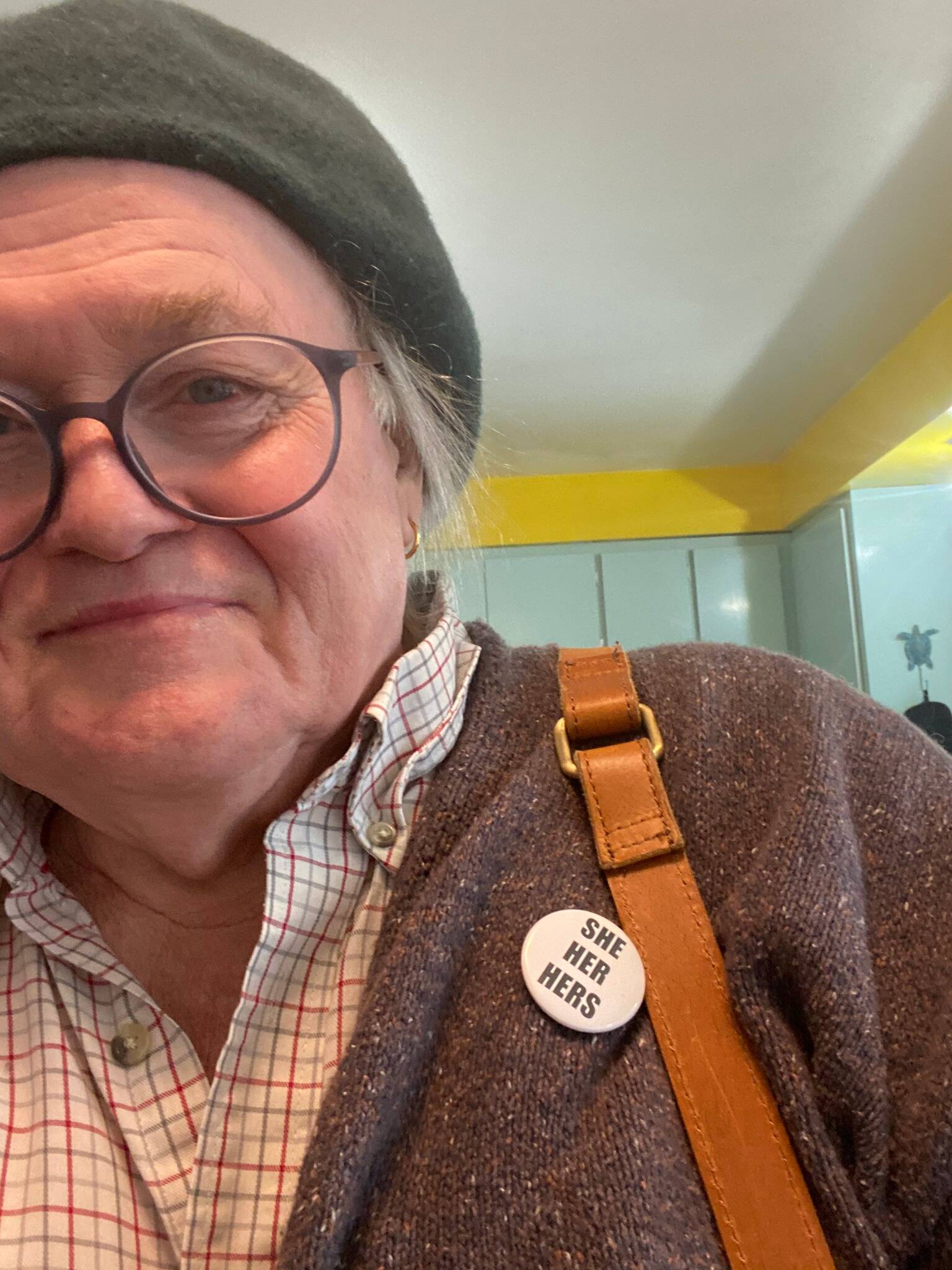Allow me to digress.
When I moved to Juneau in 1995 to take a new job, it was my first time here and I had no idea what to expect. I grew to like the job and Juneau, but still, I imagined that I’d stay for a few years and then figure out my next move. Then one morning I woke up and 20 years had gone by, and Juneau was home — my home, my kids’ hometown, the place where I met the love of my life.
Before moving up here, I’d spent a few years teaching at a university in Washington. I made some enduring friendships there, but in general I had a miserable time.
The English faculty consisted largely of a bunch of old boys who had spent the last twenty years studying how best to hate each other. The area was home to some serious ranchers, a real cowboy town, and cowboy metaphors infected university conversations, as well. You were either shooting from the hip or slow on the draw. You should get back in the saddle, but don’t squat with your spurs on. Howdee. Yippee.
The university sat on the leeward side of a valley of cattle ranches. The weather would come howling down out of the Cascades and gusting over the herds. The wind became my metaphor for the university’s English department. It blows all the time, and it smells like bull.
The one English Department colleague whose friendship I enjoyed was our administrative assistant, and I’d come into work every morning and greet her with a few bars from Willie and Waylon’s “Mamas, don’t let your babies grow up to be cowboys.”
(God bless you, Susan Van de Venter, wherever you are.)
My second year there, things started to get real. My 14-year marriage ended, and I became a single parent to two young sons. I started dating a friend, and we were having some fun times, but one weekend she went off camping with some other friends and drowned in a boating accident.
Thrown into a tailspin, I ended the semester by slapping one colleague’s remonstrating finger out of my face and, later the same week, hurling my monogrammed Land’s End briefcase at another colleague’s belligerent head. I was becoming one of them.
I woke up one morning and asked myself whether I had to teach to be happy. The answer was no, and that day I handed the Department Chair my letter of resignation.
“You can’t do that! You have a family to support!” — my colleagues snapped.
“Watch me,” I said.
At the end of an anxious, unemployed summer, I found work as a writer for NOAA Fisheries here in Juneau. Leaving my family in Washington until I could find suitable housing, I came up alone for the first time on the ferry from Bellingham.
On the ferry I met a retired English professor from Minnesota — a tall lanky man in his late 70s, not “a tattered coat upon a stick” but a head of unruly gray hair atop a weathered khaki trench coat.
The Professor told me that he took this same trip every year. Every September he would leave his wife at home in Minnesota and spend a month on the Alaska Marine Highway cruising the Inside Passage and visiting his favorite Alaska ports of call.
Discovering our affinity as former English teachers, the Professor and I spent hours watching the dark forests of Southeast sail by and talking about books and writers.
In those long conversations, a few works emerged as common favorites. Chiefly we harped on Dante’s medieval trilogy, “The Divine Comedy.”
We agreed on some favorite scenes, like Canto 33 of the “Inferno” where, near the bottom of the pit of hell, Dante the tourist and his tour guide Virgil encounter among the damned souls a bishop named Ruggieri, whose hellish punishment is having his head continually eaten. Beside the bishop is another of the damned, Count Ugolino, whose punishment is having to continually dine on Ruggieri’s face.
Ugolino is busy chowing down when he’s surprised by Dante and Virgil. Showing his noble breeding and good manners, Ugolino daintily wipes the gore from his lips before addressing the pair.
The Professor and I noted the Count’s resemblance to academics and progressives and other species that eat their own.
At the time, my private thoughts about Dante lingered on the Inferno’s compelling opening: “Midway through the journey of our life, I found myself in the dark woods, for the straight way was lost.”
That was 1995, I was 42 years old, and as the ferry sailed out of Bellingham, I sensed I was escaping my own dark woods. It was a beautiful evening, full of promise and anticipation. A warm September sun was going down behind the San Juan Islands and casting long leisurely shadows over the waters of Bellingham Bay.
I sat in the ferry’s cocktail lounge having a Scotch. As if the gods were watching, Willie and Waylon came on the jukebox singing “Mamas, don’t let your babies….”
And every mile of the way up the Inside Passage, I had the strangest feeling that I was getting closer to home.
• Jane Hale lives in Juneau with her partner and their two dogs. “Coming Out” appears biweekly on the Empire’s neighbors page.

